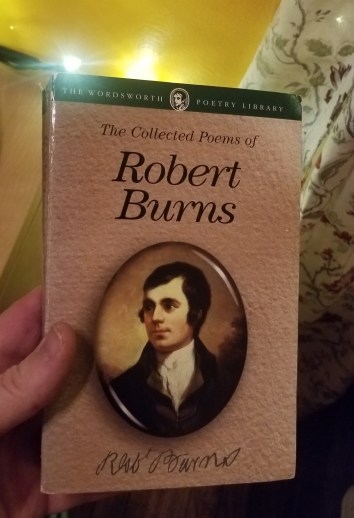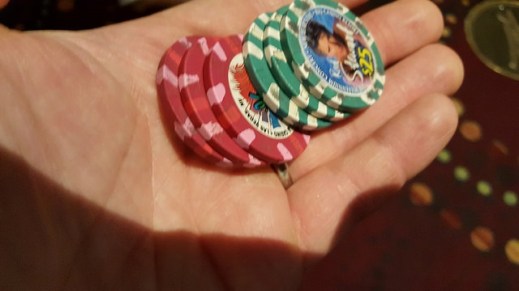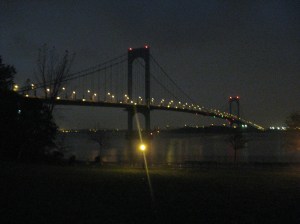RIP Kathy Shaidle, Five Feet of Fury

In the midst of a brutally chaotic and violent week, we lost one of our fiercest and funniest voices with the death of Kathy Shaidle in Ontario on January 9.
Kathy Shaidle was an opinion writer, poet, film, and cultural critic and unrelenting defender of free speech. She was a conservative Catholic who made enemies on both the left and the right. The biography in her memoir Confessions of a Failed Slut reads “I’ve been called one of the nation’s worst racists by the head of the Canadian Jewish Congress, and a tool of the Zionist conspiracy by Stormfront.”
Oftentimes, more conservative commentators discuss the arts and modern contemporary culture as a kind of alien civilization so foreign and depraved as to escape all comprehension. Part of what made Shaidle so effective an advocate for conservative ideas is that she wrote about contemporary culture fearlessly and with authority. Her time in the punk rock world gave her familiarity with counterculture and informed her arguments in favor of tradition and faith. She had been there, done that, and had the t-shirt.
Few conservative columnists could discuss “The Rocky Horror Picture Show” with deft expertise or delve into the memoir of Sex Pistols guitarist Steve Jones with a knowing eye, but Shaidle could do all of that and make you laugh out loud. Even if she did not convince you, she would present a great argument with logic and, most importantly, a sense of humor that never quit.
She titled her blog “Five Feet of Fury” in reference to her short stature. Whether you agreed or disagreed with her views, she was always fun to read. She had a poet’s eye for language—she published several volumes of poetry—and became a devout Catholic later in life. While religious, she did not preach, and modern secular sanctimony was her most common foil.
I exchanged emails with her once, six years ago, after she linked to one of my articles in her column. The article was in a now-defunct Web site, and she mentioned she was a fan of the site and was jealous I wrote for them. Getting a link and compliment on opinion writing from Kathy Shaidle was like having Michael Jordan admire your jump shot or seeing Lenny Bruce laugh at your jokes. It was a boost of morale that has stayed with me years later.
A year ago, Shaidle revealed she had Stage 3 ovarian cancer with a piece titled By the Time You Read This, I Will Be Bald. She wrote, “After more than 50 years, I finally got my hair to look just the way I wanted. So of course I got cancer.”
Over the past year, her spirit and humor did not waiver and she informed her readers of her journey through ovarian cancer. She neither wallowed in self-pity nor attempted to give her readers a rose-colored view of this journey. Earlier this month she posted a note that she would soon be in hospice. A few days later, a self-penned obituary appeared online:
Kathy Shaidle 1964 – 2021
Following a tedious rendezvous with ovarian cancer, Kathy Shaidle has died, wishing she’d spent more time at the office.
Her tombstone reads: GET OFF MY LAWN!
She is relieved she won’t have to update her LinkedIn profile, shave her legs, or hear “Creep” by Radiohead ever again. Some may even be jealous that she’s getting out of enduring a Biden presidency.
Kathy was a writer, author, columnist and blogging pioneer, as proud of her first book’s Governor General’s Award nomination as of her stint as “Ed Anger” for the Weekly World News. A target for “cancel” culture before the term was coined, she was denounced by all the best people, sometimes for contradictory reasons. …
It was exactly the kind of sendoff one would expect. Kathy Shaidle was a fearless writer who defended free speech with unshaking certainty. She faced death with the kind of grace and humor that her readers admired. She will be greatly missed.
A tribute to Burns Night and the Brooklyn of Old

Fifteen years ago, it was a cold night in an apartment in Prospect Heights, Brooklyn where maybe two dozen people gathered for a Burns Night party. Burns Night is January 25 and celebrates the birthday of Robert Burns, the Scottish poet who lived in the late 1700s.
Several of us had brought our volumes of Robert Burns’ poetry, and at any point during the party, a partygoer would shout “Poem!” and silence the festivities for a reading of Burns poem.
The host had traveled to a meat distributor in New Jersey to obtain authentic haggis, a traditional Scottish dish comprised of a sheep’s offal and other ingredients served inside an animal’s stomach. A central ritual of the Burns Night party consisted of our host cutting open the haggis while someone read the Burns poem ‘Address to a Haggis.’
These Burns Night parties were a testament to the greatness of New York City and to the promise and meaning of Brooklyn to so many people. These were eclectic gatherings that showed the power of art to transcend time and place. Here were people of a variety of ethnic backgrounds celebrating a Scottish poet. The host, Roger, is a Peruvian Jew who grew up in Detroit. There was at least one real Scotsman at these parties, or at least he looked the party with a kilt. Maybe none of us had a drop of Scottish blood. Who cares? The power of Burns’ poetry transcends.
Among the guests at Roger’s parties were his frequent music collaborator Scott and Scott’s wife Diane. I once got to dog sit for Scott and Diane’s amazing dog Connolly (full name: Satchel Connolly X) – I picked up their house keys at a local diner where they knew the owners, walked their dog and explored Prospect Heights, which was a real neighborhood.
They were among the most active voices opposing the Atlantic Yards Project, a corrupt boondoggle that forced people out of their homes and businesses to construct luxury housing and a sports stadium. That fight was lost and the Barclays Center now sits on what used to be the part of the vibrant and eclectic Prospect Heights neighborhood. To this day I have not set foot inside the Barclays Center.
Roger returned to Detroit and Scott left Brooklyn and ended up in New Orleans. Diane remained in Brooklyn for a while after their breakup but she later moved to Westchester. All these people are doing well. Roger continues to write brilliantly, Scott has had his photos exhibited and Diane is a Fordham professor who recently published a book.
Those parties and those three people in particular represented Brooklyn to me like nothing else. They had each had come to New York and conquered it on their own, leaving great music and art in their wake. When those three people left Brooklyn, it was a sure sign that the things that made Brooklyn special were gone forever. If the people who embodied the spirit of Brooklyn more than anyone I knew were had left, then Brooklyn had outlived its usefulness.
That’s not to say there is nothing good about Brooklyn. I still go to Coney Island and Prospect Park and there are still music venues in Brooklyn worth your while. But for the most part when I think of Brooklyn I think of overpriced real estate and the hordes of well-off people who are driving up the price of everything.
But people who attended Roger’s Burns Night parties years ago have not forgotten them. A friend recently spent Burns Night at Peter Luger’s Steak House and recited some Burns poems to his family and friends. Diane mentioned Burns night in a school lesson about ethnic foods and culture; sadly her students had not heard of Burns Night.
Roger posted his memories of Burns Night online, noting how he first came across a reading of Burns poetry inside a pub in New Jersey, and woke up the next day in New York determined to be one of the people who would recite Burns poetry.
I stayed up late with my volume of Burns poetry, and read The Bonnie Wee Thing to my wife while holding her hand. It was not the happening party of years ago, but I could not go to bed on Burns Night without reading a Burns poem.
The Burns Night parties in Brooklyn of long ago are gone, but as long as I live I will keep them alive in spirit, and I am not alone.
Aye.
Poetry: Ten-Dollar Blackjack

A new poem, Ten-Dollar Blackjack, is online via Impolite Literature. It was inspired by a good night at a Blackjack table. I had reason to visit Las Vegas recently for work and while I am not a big gambler I wanted to take in some Vegas nightlife and I wasn’t able to get to see Penn & Teller.
I was staying at The Rio and I didn’t have time to go far since my time in Vegas was short. I decided after a day of work and schmoozing for work to enjoy some time in the gambling pits of the casino before retiring to my room.
So after quickly losing $20 on Roulette I made my way to the nearest $10 minimum Blackjack table. Two people from the work conference happened to be there so I sat down and enjoyed the friendly game. One of the two conference attendees retired and I was soon there at the table with Adam, an earnest and well-mannered conference attendee form Indiana and an older Asian man who spoke only broken English.
Adam and the elderly man schooled me on the finer points in Blackjack as we went along. The good thing about Blackjack is that if you can do basic addition and remember a few simple rules, you have a fighting chance at coming out ahead. And come out ahead I did. I made a total of $50, walking away from the tables with $90 in chips on a $40 investment. Those are good returns. My greatest skill that night was quitting while I was ahead.
Poetry: Long Beach Island

Long Beach Island, New Jersey is a tourist haven and I have no doubt that when the summer season is in full swing it is crowded and obnoxious. But going there during the off season, even a week or so after Labor Day, the place retains its beauty on the beaches but the towns take on a somewhat empty appearance, which makes it even more interesting. You can see starts at night there and the island is narrow enough that you are never far from the ocean.
The hum and crash of the ocean is constant. Even when you can’t see the water beyond the buildings or the sand dunes, the ocean keeps up its end of the bargain and sings you to sleep.
This poem care of Impolite Literature tries to convey what it’s like to enjoy Long Beach Island in the off season. I think we’ll be back next year.
Rockport at Night

Rockport, Massachusetts has a certain surreal and extremely beautiful quality about it, especially as you experience sunset there in the summer.
Rockport is a relatively small town that experiences tremendous tourism over the summer and has struck the right balance between quiet residential life and tourist mecca. The town handles large volumes of visitors but without surrendering the picturesque and friendly charm that attracts them.
This poem, “Rockport at Night”, attempts to capture the beauty and spirit of a place that is becoming too rare in American life today.
Distant Lightning

A new poem, “Distant Lightning” is up on the Impolite Literature web site.
One night in our off-campus apartment in Athens, Georgia, I came to the living room to find one of my roommates sitting in the dark, looking out our window. He had a beer.
“What are you doing?” I asked him.
“Watching the lightning in the distance,” he said.
In the South the weather is such that you can often see storms coming from a ways away. The storm may not reach you but the lightning lights up the sky where you can see it and it’s beautiful.
A few weeks ago I was on Cape Ann, Massachusetts with my family and I went out for a nighttime ice cream run for my wife and I. As I walked down Rocky Neck in Gloucester towards the ice cream parlor, I saw lightning in the distance. It was peaceful outside, and the lightning in the clouds in the distance was beautiful.
A few days before, we had to hurry home from a fast-approaching storm. As we headed down Rocky Neck Avenue to where we were staying, I saw a woman run into Rocky Neck Park with a camera. I couldn’t resist looking to see what she was photographing and it was a set of storm clouds moving in fast.
The weather rules our world more than we can ever control or prepare for. It may rain destruction upon us, but it will inspire us.
This poem was inspired by the distant lightning past, present and future. May it continue to inspire.
I Want To Be Poet Laureate of Queens

The Borough of Queens is taking applications for its poet laureate, and I’m going to throw my sweaty hat into the ring. I think my chances of being accepted are low, but fuck it. I’m as good as anyone else and I like this borough very much.
Queens was where I lived when I moved back to New York. I had been away from the Northeast for several years and hadn’t lived in the five boroughs since I was an infant in the Bronx. I grew up mostly in Yonkers and while I came to the city frequently growing up, I am by and large a child of New York’s suburbs.
In college I decided I wanted to be a great American writer in the same way that thousands of other English majors do. I was determined to get myself back to New York City as if that would somehow magically bestow some great inspiration power and let me live a charmed literary life.
I got a job at JFK airport that helped me move back here and I went looking for apartments that were a reasonable commuting distance to JFK. I found a small studio in Ozone Park at $500 per month (it soon went up to $525). It was on 101st Avenue and John Gotti’s old Bergin Hunt & Fish Club was still there and only a few blocks away. That was a selling point that the realtor mentioned. “People know not to mess around in this neighborhood,” he said. Gotti had been locked up for several years by then but the neighborhood still had some old wise guys hanging around.
I enjoyed living in Ozone Park a lot. I would walk around the neighborhood as much as I could and enjoyed how quickly neighborhoods could transition from one to another. Not far from where John Gotti plotted his takeover of the Gambino Crime Family a store sold cricket supplies to the Indian and West Indian immigrants who were moving into Richmond Hill. I was not too far from Forest Park and I could also walk to the small apartment where Jack Kerouac wrote his first novel.
While immediate literary success proved elusive, I managed to publish my first poetry collection while I was living in Ozone Park. ‘Five Borough Blues’ was a small broadsheet of poems published by New Jersey-based Lucid Moon Poetry (RIP Ralph Haselmann Jr.).
Years later, after living in Inwood for a decade, I moved in with the woman who is now my wife and that brought me to Flushing. I got to learn Northern Queens whereas Ozone Park is in Southern Queens.
The greatest borough continues to impress me. I do miss Inwood a good bit, I can’t lie. But Queens has many more great neighborhoods that are still real neighborhoods and not overpriced tourist zones.
Queens has both the greatest number of interesting neighborhoods, real residential neighborhoods with character, as well as cultural institutions and a variety of environments that the other boroughs don’t have. Do you have the beachfront and harbor areas like Broad Channel and the Rockaways in Manhattan? No. Can you find 24-hour Korean barbeque in Staten Island? Good luck.
And without fail, Queens continues to inspire me to write poetry. The entire city does, to be sure, but Queens is my home and it’s where I believe you find the most New York part of New York. It has the widest array of cultural offerings and the largest sampling of interesting people anywhere in the world. It stands between the city and its suburbs. It has all manner of terrain. It even has its own zoo.
I will gladly accept the (unpaid) responsibilities of the Queens Poet Laureate. I will let no excellent verse about this borough go unwritten. Applications are due April 24th (April is national poetry month).
But whether or not I am poet laureate of Queens, I will continue to let the city inspire to create good written works. It deserves no less.
The Greatest Borough – a poem for the hearty literary types
 The first poem of the year has been posted on the Impolite Literature blog. The poem is entitled “The Greatest Borough” and it’s an homage to Queens, which I contend is the city’s greatest borough. You may disagree.
The first poem of the year has been posted on the Impolite Literature blog. The poem is entitled “The Greatest Borough” and it’s an homage to Queens, which I contend is the city’s greatest borough. You may disagree.
June Rain, the Poem
It’s been a rainy month so far here in New York City, and what better way to celebrate the unappealing heat and humidity of summer in New York than with a poem. Read it on the Impolite Literature blog.



Recent Comments